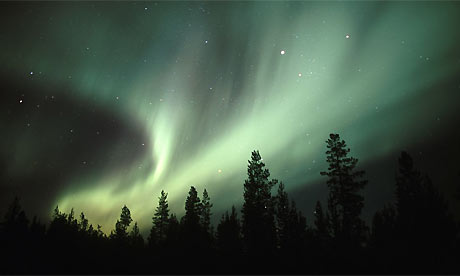
The storyline of Poul Anderson's Hrolf Kraki's Saga, my second venture into former British Fantasy award winners – it took the 1974 prize – is fantastic. Blood, gore, incest, trolls, witches: it's got 'em all. A retelling of Norse legends, it's full of thrills. The only problem is the execution, which doesn't live up to the subject matter.
Anderson has stitched together a collection of sagas and verses about Hrolf, who lived and ruled around the middle of the sixth century in a rare period of peace for the Norse region. Hrolf is the child of incest: his father Helgi rapes a warrior queen, who keeps their daughter Yrsa hidden away, only for Helgi to – naturally – fall in love with her when he returns, and bear her off to be his bride. Hrolf manages to unite a divided kingdom, bringing together a mighty band of warriors, only for his sister, the half-elf Skuld, to bring him down. (Their battle makes one fan's list of the top 10 fantasy fights.)
There are great moments: the story of Bjorn, cursed by his stepmother for refusing to sleep with her, who becomes a bear. The meeting of Helgi and the mother of Skuld, whom he lets into his shack on a cold night to discover she's an elf from beneath the sea. The berserkers ("in battle a madness came upon them"). Chilly, stark descriptions of the northern wilds, where fjords "stabbed far into ice-helmeted mountains", where "the earthquake stride of a troll" echoes, where witches must be suffocated in sealskin before they're killed.
Unlike Michael Moorcock's Corum trilogy, with its soppy Rhalina, there are also some feisty women: for instance, Olof, the warrior queen, who, when Helgi attempts to marry her, pricks him with a sleep-thorn, hogties him, shaves him, covers him with pitch and puts him in a leather sack. Go Olof.
But all this is buried beneath an enraging attempt to cloak the novel in the language of myth – or what Anderson has decided sounds portentous and ancient. Just as the "dosts" and "thees" of the Corum trilogy irritated me, so do Anderson's "hights" and "dwelts" and back-to-front constructions. "Long he sat …" "Huge was the wonder …" No, no, no: you aren't Yoda. And when Anderson – mistakenly, I can only assume – throws in the odd "gotten", it really jars.
What makes me cross is that Anderson can clearly write, and when he forgets what he's trying to do and just goes with the story, you catch a glimmer of how good this could be. He is also hugely knowledgeable about the period. But I can't take it seriously when, wanting to hark back to the source material, he throws in a snatch of verse. "The well-born were expected to be able to make a verse at any time, and a gift of skaldcraft ran in her blood," he writes, before indulging himself in eight lines of dubious, Tolkien-at-his-dreariest poetry. And that's only a short one. The longest runs to three pages in my edition.
In his introduction to the book, Anderson tells us how he had long wanted to reconstruct this myth, to "put together the best parts, fill in the gaps, use the old words where they seem right and otherwise find new ones". I think he'd have done better to ditch the old words altogether and stick with his own in order to do justice to this brutal, dark story, which is just as good as Beowulf.
Anderson wasn't only a fantasy author; he also won seven Hugos for his science fiction, and I'll be interested to see what Sam Jordison makes of those books. Moorcock, by the way, loves Poul Anderson's The Broken Sword, another northern tale. Perhaps I'll give that a try; I don't want to give up on Anderson quite yet.
Now, the question of what to turn to next. Will it be the next BFA winner – Moorcock again, this time with The Sword and the Stallion? The inaugural World Fantasy award winner Patricia A McKillip's The Forgotten Beasts of Eld, which took the 1975 prize? One of the Fantasy Masterworks, as suggested by mooneym a couple of weeks ago? (I'm very tempted by ER Eddison's The Worm Ouroboros, partly because I bought it from a secondhand shop last week, and partly because it has such extravagant praise on its cover, which trumpets it as "a literary event of the first importance".) Suggestions welcome – I'm drowning in fantasy.

